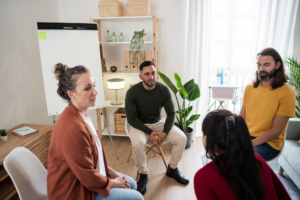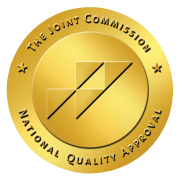Understanding California’s CARE Court Expansion: What It Means for Mental Health Support in Our Communities
California recently expanded the eligibility criteria for its CARE Court Program, aiming to support individuals living with severe mental health challenges who may be struggling to stay connected to treatment. While this program continues to evolve, the increased focus on mental health needs across the state opens the door for an important conversation: how do we truly support people long before they reach a crisis point?
At LIDO Wellness Center, we believe early, compassionate, voluntary care is one of the most powerful tools we have. This moment in California’s mental health landscape reminds us just how essential accessible, trauma-informed support can be.
What the CARE Court expansion means
The expansion allows more individuals—specifically those experiencing psychotic symptoms related to bipolar disorder—to be considered for CARE Court referrals. According to recent reporting from California news outlets, the goal is to reduce cycles of hospitalization, crisis, or housing instability by providing structured treatment pathways and supportive decision-making.
While the program is still young, and its outcomes continue to be measured, the broader message is clear: California is acknowledging the urgency of mental health needs and exploring new ways to connect individuals to services.
The earlier the support, the better
Most people living with depression, anxiety, trauma, bipolar disorder, or other emotional challenges will never interact with a court-based intervention. And ideally, they should never have to.
What often makes the greatest difference is timely access to therapy, stability, community, and ongoing clinical support—well before someone finds themselves in a crisis.
At LIDO, we see firsthand how individuals can flourish when they feel safe, respected, and supported in choosing their own path to wellness. Our Partial Hospitalization Program (PHP) and Intensive Outpatient Program (IOP) provide structure without taking away autonomy, allowing clients to heal in an environment built on dignity and connection.
How families and loved ones can offer support
Navigating the mental health system in California can feel overwhelming, especially when someone you care about is struggling. You don’t need to have all the answers to make a difference. Some of the most impactful steps include:
-
Checking in regularly and listening without trying to “fix” everything
-
Noticing changes in mood, functioning, or social withdrawal
-
Encouraging professional support early
-
Familiarizing yourself with programs available in your community
-
Offering to help with the process of exploring care options
If your loved one is beginning to show signs of distress—changes in sleep, difficulty managing daily responsibilities, isolation, or patterns of overwhelm—compassionate outpatient care can prevent symptoms from escalating.
How LIDO Wellness Center supports individuals and families
Our clinical team uses evidence-based and trauma-informed approaches designed to reconnect clients with themselves, their values, and their community. We work closely with individuals experiencing:
-
Depression and anxiety
-
PTSD and trauma-related symptoms
-
Bipolar disorder
-
OCD and intrusive thoughts
-
Emotion dysregulation
-
Relationship and attachment wounds
For clients who need more support than weekly therapy but do not require hospitalization, our PHP and IOP programs provide a structured and therapeutic space to stabilize, grow, and rebuild.
If you or someone you love is trying to understand mental health changes, or if you want to explore care that feels grounded, compassionate, and empowering, our team is here to guide you.
Moving forward with compassion and clarity
The expansion of California’s CARE Court program reflects a growing recognition of how deeply mental health impacts individuals, families, and communities. While court-based interventions are designed for specific situations, the larger takeaway is encouraging: our state is talking more openly about mental health, investing in new models of support, and acknowledging the need for earlier access to care.
At LIDO Wellness Center, we remain committed to offering the kind of care that honors autonomy, prioritizes safety, and meets people where they are. Healing begins with connection—and help is always closer than it seems.
Your Next Step
If you or a loved one is considering treatment at Lido Wellness Center, expect to find a place that values progress over perfection. A place where structure meets warmth, and where every detail—from the clinical approach to the environment—is built to help you regain balance and move toward lasting wellness.
Reach out today to learn more about programs and admissions, or simply to talk through what the next step might look like for you. 👉 Contact Lido Wellness Center
Part of the Pathway Healthcare Network
Lido Wellness Center is proud to be part of the Pathway Healthcare network — a system of care providers dedicated to behavioral health treatment. Learn more about the Pathway Extended Network here.
Explore Our Extended Network:



